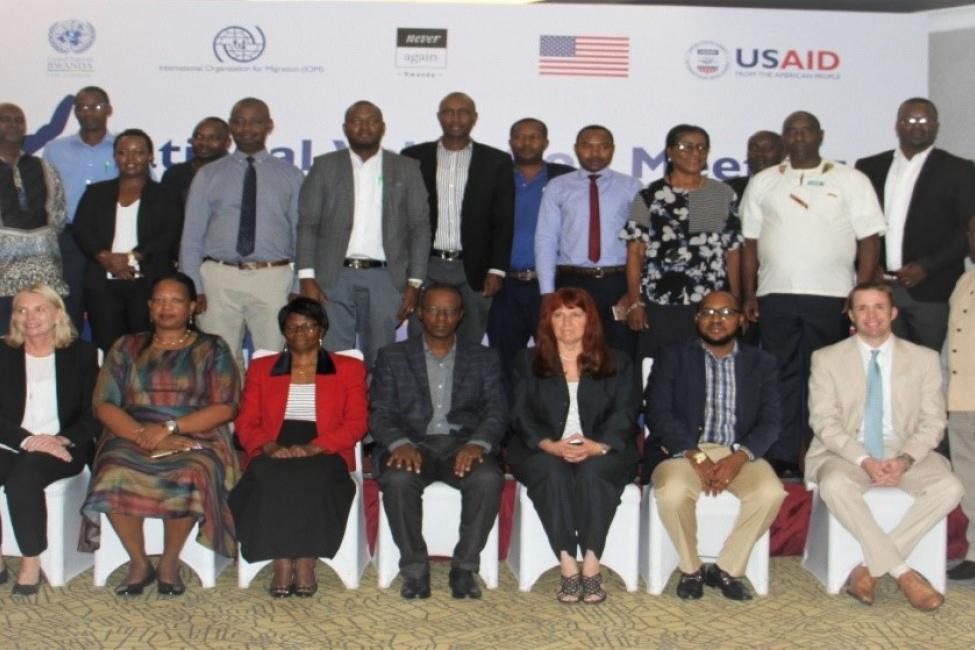-
Who We Are
WHO WE AREThe International Organization for Migration (IOM) is part of the United Nations System as the leading inter-governmental organization promoting since 1951 humane and orderly migration for the benefit of all, with 175 member states and a presence in over 100 countries. IOM has had a presence in Rwanda since 1994.
About
About
IOM Global
IOM Global
-
Our Work
Our WorkAs the leading inter-governmental organization promoting since 1951 humane and orderly migration, IOM plays a key role to support the achievement of the 2030 Agenda through different areas of intervention that connect both humanitarian assistance and sustainable development. In Rwanda, IOM actively supports the government in all its migration related efforts.
Cross-cutting (Global)
Cross-cutting (Global)
- Data and Resources
- Take Action
- 2030 Agenda
In Rwanda, Research on Understanding Human Trafficking Validated
Kigali - The International Organization for Migration (IOM), in collaboration with the Government of Rwanda, organized a national meeting (19/7) to validate research findings on “Understanding Human Trafficking in Rwanda: Causes, Effects, and Impact.”
The research, the first of its kind in the country, was conducted by Never Again Rwanda, a local NGO, and funded by United States Agency for International Development.
It was aimed at determining the scope of human trafficking in Rwanda, as well as its characteristics and associated factors, to formulate evidence-based recommendations to strengthen response to at the local and national level.
The key findings show that Rwanda is a transit country, and to a lesser extend a country of origin. The majority of intercepted victims were female (77.67%) and the most commons forms of human trafficking in Rwanda were identified to be labour and sex trafficking. The research further revealed that Saudi Arabia is the most frequent destination (38.55%), followed closely by Uganda (37.35%) and Kenya (7.23%).
The Government of Rwanda has made significant achievements in combatting trafficking in the country; including passing a new law in 2018, training government officers and conducting awareness raising events.
Still, the research highlighted some remaining key challenges. These include scarce resources, inadequate victim testimonies and a lack of cooperation mechanisms with other countries. In addition, research findings show that service providers reported challenges related to identification. Assistance to victims is often short term due to lack of shelters. Male victims are often neglected too.
The research report will serve as a baseline for informed and evidenced based programming in the future.
IOM continues to actively support the Government of Rwanda in all its migration related efforts.
***
For further information please contact Alia Hirji at IOM Rwanda, e-mail: ahirji@iom.int.
